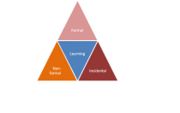Template:Non-formal Education
(![]() : Dear Jyoti, Is this what you want? The top template is what I have done. Delete it if this is not what you are trying. Warm Wishes from back in India. Gita Gita Mathur 05:00, 5 February 2009 (UTC))
: Dear Jyoti, Is this what you want? The top template is what I have done. Delete it if this is not what you are trying. Warm Wishes from back in India. Gita Gita Mathur 05:00, 5 February 2009 (UTC))
| Welcome to the Non-Formal Education Movement | ||
|---|---|---|
| Reaching the Unreached | ||
| Introduction |
Objectives | What is NFE? | Why NFE? | For Whom? | Defining NFE | Initiatives | FAQ's |  | |
Following are the objectives of this Module
|
Contents
What is Non Formal Education
'Learning', largely is associated with formal schooling, besides, this can also take place through two other channels of education : incidental and non-formal mode of education.
- Incidental Education: As the terms refers to incidental learning that occurs automatically during the process of daily life, or as result of what an individual absorbs from the environment in which s/he lives or grows up.
- Formal Education: As we all know, formal education is confined to school education or mainstream education, which is a deliberate, significant and widely adopted mode of education.
- Non-formal Education: The non-formal education, on the other hand, is an arranged system which is offered at places, time covenient to learners and also according to their social context.
Why Non-Formal Education?
The basic purpose of non-formal education is education for better living to be imparted outside the bureaucratic structure of the formal educational system. The objectives of non-formal education are hence clustered around drop-outs from formal education, functional illiterates, unemployed or under-employed youths and adults. However, one also needs to realize that the non-formal system of education is not a counter activity in opposition to formal education, but it is meant to complement the formal system of education. The following are some of the objectives of non-formal education.
- To educate the drop-outs from formal educationrmal education.
- To prepare individual for self-employment.
- To provide life-long education.
- To raise the social and scientific awareness.
For Whom Non-Formal Education?
One may always wonder who needs non-formal education? This probably may be due to the accustomed view that education means a process that takes place within the four walls. Each one of you or most of you may have come across friends in your life who had to opt out of the formal system of schooling due to various reasons. The probability of not being able to cope with the formal schooling is noticed more in the developing countries. The reasons why mainstream education or formal education does not succeed in terms of catering to the educational needs of an universal population are many. Exploring and summarising these reasons could be an interesting activity.
|
By tracing yours or others experiences, one may realize there is a need for certain pattern of education that reaches those who are unable to attend school. The non-formal education is a form of education that gears to needs of these section, by making itself available according to their requirements.
In other words, this alternative is accessible for those
- Who have dropped-out from the formal schools
- Who cannot afford to go to formal schools
- Who are presently out-of school
- Who would like to join back the mainstream
| Defining Non Formal Education - Naik (1977)indicated "non-formal channels of education cover both liberal and vocational education; they are traditional as well as modern; and they have continued to play an important role in the education and socialization of individuals, both before and after the birth of formal education. Like incidental education, non-formal education covers all the three educational objectives of imparting knowledge, teaching skills, or promoting values, although in the traditional forms it was most commonly used for the teaching of skills." |
Initiatives in Non Formal Education
Several intiatives have been taken so far, especially in the developing countries to impart non-formal education in order to meet the educational demands of the diverse population within their country.
Lets look at India. Eversince, India got independence, tremendous have been made to attain Universalisation of Elementary Education. We have been successful so far in increasing the enrollment rates and retention rates. Yet, certain section of the population have not been able to join the mainstream education due to various reasons. For instance, children of the migrant workers, seasonal workers like those employed in the Sugarcane factories, brick workers, those working at the salt fields do not find the formal system of education covenient for their children. It may be surprising to some as to why do they not find the formal schools convenient? Lets look at the following case-study to find answers to this question.
| In the State of Maharashtra, one of the crops that is largely grown near the river belts or regions with sufficient water, is the sugar cane crop. This crop provides employment to several families especially during its harvest season, when the crop is harvested and transported to the sugar mills for futher processing. These adults in these families are employed for a couple of months.
|
